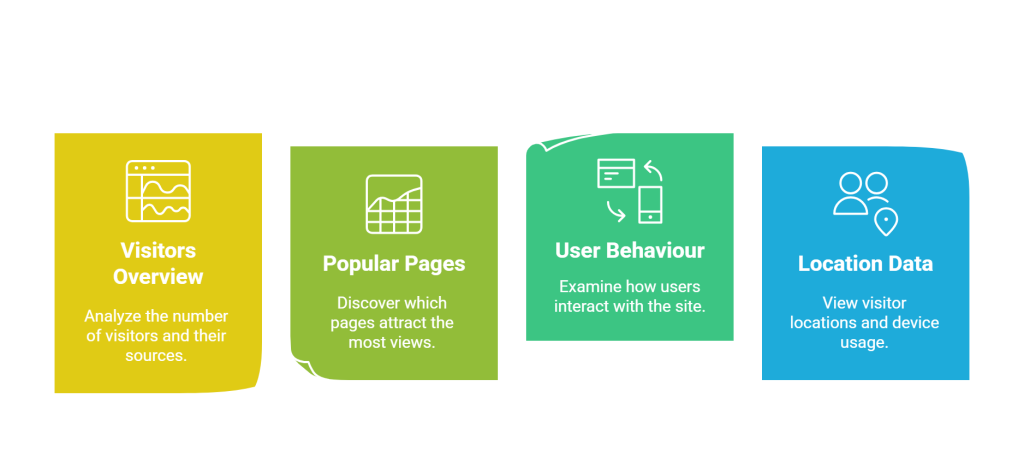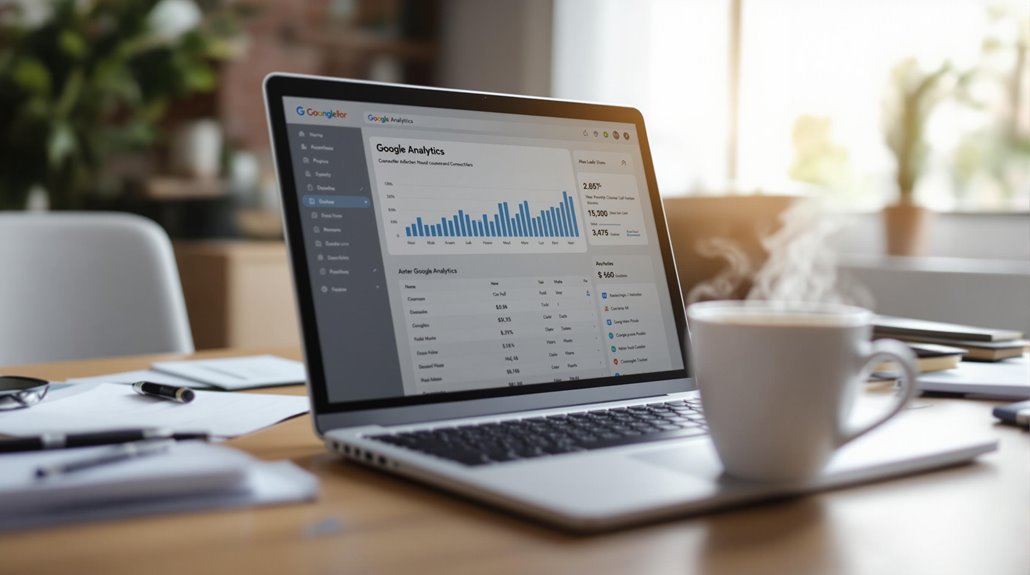Welcome to our guide on Google Analytics for Counsellors! This guide explains what Google Analytics is and how to use it to attract clients and understand your website performance. So, let’s dive right in!
What Is Google Analytics
Google Analytics is a tool that helps you understand how people interact with your website. For counsellors, it gives valuable insight into how your website is performing and how people are finding it. It allows you to track important key metrics such as:

- website visitors – see how many people come to your site and from where (search, social media, referrals from other sites, etc.)
- popular pages – identify which pages are getting the most views and engagement
- user behaviour – understand how visitors navigate your site, how long they stay, and if they take important actions like booking appointments
- location data – see where people are located and what devices they are using
It is a useful tool for improving your website and tracking your marketing efforts. If you understand what Google Analytics is telling you, you can further enhance client experience by seeing what clients are looking for and ensuring your site has the right information.
We’ll show you how to navigate your way through the setup process, setting you up for success in monitoring, understanding, and optimizing your user’s journey.
Setting Up Google Analytics
For mental health professionals seeking to reach more clients online, setting up Google Analytics can be crucial. To get started, create a Google Analytics account and outline your business details by selecting a property. Then, set up a web data stream with your website’s URL for enhanced measurement, keeping track of essentials. Install Google Analytics to your website, which plugin you use depends on which website builder you have chosen.
WordPress: Site Kit by Google or MonsterInsights
Squarespace, Wix: Go to your website setting, look for Google Analytics or Tracking Code settings and paste your measurement ID
After this, verify your setup is working and start tracking goals. If you want to track bookings for example:
- In Google Analytics, go to Admin > Events > Create Event.
- Add an event for actions like “form_submission” or “appointment_booking”.
- If you use Google Tag Manager, you can track button clicks for booking links.
Data Evaluation

For mental health professionals, monitoring real-time data can be essential in managing online presence. They offer valuable insights into understanding how teens, couples, and other individuals interact with your website, allowing you to make swift and effective decisions. You should select some key metrics to focus on so you can fully understand what they mean and how to improve them. We recommend focusing on engagement rates, bounce rates, session duration, traffic sources, and conversions.
Bounce Rate and Engagement Time: A high bounce rate or low engagement time could mean your content isn’t engaging enough or your website isn’t user-friendly.
Returning Users: While some industries want users to buy products or services on their first website visit, it’s okay if potential clients take some time to book with you. Selecting a therapist isn’t an easy decision, and it may take some people multiple visits to select you as their care provider.
Session Duration: A longer session duration may signal that the content on your page is resonating well with users.
Traffic Sources: This helps you see which sources bring in potential clients so you can focus your marketing efforts effectively.
Conversions: Conversions indicate if visitors are turning into actual clients and booking on your site.
Understanding User Behavior

By analyzing user behaviour, we can make data-informed marketing decisions, improve content engagement, and optimize the user experience. You should continuously monitor user behaviour and adapt your strategies to stay ahead.
Understanding user behaviour helps you identify what potential clients are looking, they may be seeking specific types of counselling so you can market those services more if you are a provider in that field.
It helps you improve the user experience so you can refine marketing efforts and focus on specific areas that are performing well, or adjust areas that aren’t. If the majority of clients are coming through social media for example, you may want to increase resources to those platforms.
By using Google Analytics, you can fine-tune your website, improve engagement, and grow your practice.
